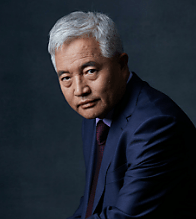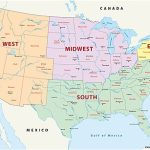
James A. Dorn
Fifteen years ago, Weiying Zhang, a distinguished professor of economics at Peking University, published a path-breaking book, The Logic of the Market: An Insider’s View of Chinese Economic Reform (Shanghai People’s Press). In 2015, the Cato Institute brought out an English edition of his book translated by Matthew Dale. The key idea that Zhang espouses is that, if China is to achieve long-run growth and “establish a truly harmonious society,” it must nourish free markets and adopt a just rule of law that limits the power of government and protects persons and property (p. xiv).
Zhang was instrumental in laying the framework for China’s move from plan to market. He helped institutionalize the dual-track price system in 1984, which eventually led to widespread price liberalization (p. 239). In 1994, he helped establish Peking University’s China Center for Economic Research (CCER), which later evolved into the National School of Development (NSD). Writing in the Journal of Chinese Economic and Business Studies, in 2019, he criticized the “China Model” and argued:
It is the marketization and development of non-state sectors, rather than the strong power of government and the state sector, that have driven the Chinese economy to grow fast and to be increasingly innovative. If China wants to sustain its economic performance, it must stay on the way to continuing marketization.
Zhang was born into a peasant family in Wubu County, Shaanxi, on October 1, 1959. Although his family suffered under Mao Zedong’s destructive policies, new opportunities emerged with Deng Xiaoping’s economic reforms beginning in 1978. By 1984, Zhang had earned his B.A. and M.A. degrees in economics from Northwest University in Xi’an. He then went on to study at Oxford University where he earned a D. Phil. in economics in 1994. His personal hardship under China’s planned economy—and his subsequent exposure to market liberal ideas—led him to value a free market for ideas as essential for human progress.
For those who hear only negative comments about China’s future, one bright spot is the voice of Weiying Zhang and his persistent call for freedom as the surest way to social and economic harmony. The purpose of this essay is to amplify his voice by sharing some of his key ideas as found in The Logic of the Market and more recent writings.
The Logic of the Market
In his 2010 book, Zhang shows that:
It was precisely the relaxation of government control that brought about market prices, sole proprietorships, town and village enterprises, private enterprises, foreign enterprises, and other non-state-owned entities.… High levels of government intervention and state-owned enterprise dominance are not the reasons for the Chinese economic miracle [pp. xii–xiii; all page numbers are from the 2015 Cato edition].
The following excerpts show Zhang’s deep understanding of the logic of the market.
The Institutional Basis of a Free Market and Its Value to Society
Markets do not exist in a vacuum. Free markets require private property protected by a just rule of law. Policies that depart from that path are harmful to social and economic harmony.
“Traditional economics sees the market as only a means of efficiently allocating resources, not as an institutional arrangement for human beings to pursue happiness via the division of labor and cooperation.… [T]he orderly operation of the market only relies on liberty, private property, and the rule of law.” (p. xiv)
“One of my basic conclusions is that laissez-faire—or policy that does not require forced government intervention—is the best policy. From this perspective, any policy that limits entrepreneurial spirit or inhibits business creation and innovation is not a good policy.” (p. 95)
“Any policy that leads entrepreneurs to rent-seek is not a good policy. Industrial policies lead to entrepreneurial rent-seeking. Many people, including some Americans, praise China’s industrial policies. Actually, China’s industrial policies have never been very successful. The premise of industrial policy is that government officials understand the future direction of development, including changes in consumer preferences and technological trends, better than entrepreneurs do. That assumption is baseless.” (p. 96)
“The progress of humanity has been a continuous transition to the logic of the market.” (p. 109)
“Institutions are frameworks that also require ethics. If society does not pay attention to the structure of institutions, without respect for human rights or property rights, and if it relies only on preaching, everyone will become a hypocrite. What is Chinese education’s biggest failure? It is not suppressing the innovation of young people or destroying their curiosity. The biggest failure is turning people into hypocrites, making everyone shameless. Why? Because we have not built a system of private property rights. Those who say they serve the people often do nothing to serve the people.” (p. 110)
“If everyone acted according to the logic of the market—attaining happiness by devising ways to create value for others or to bring about wealth for other nations or peoples—global conflicts would lessen. Free trade is extremely important. When I lecture in the United States, I recommend two books to American politicians. One is Adam Smith’s The Wealth of Nations, for its free trade theories; the other is Laozi’s Tao Te Ching.” (p. 112)
Lessons from China’s Economic Reform
China’s price reform was gradual, from a centrally planned system to a dual-track system—with both market and administered prices—to a primarily market-based system. However, without widespread private property and personal freedom, further reform is necessary to capture the many benefits of a free market.
“[China’s] reform created its own path to a market economy. Policies that encourage and tolerate people’s self-interested actions also encourage and tolerate people’s institutional innovations. When peasants, workers, and bureaucrats are allowed to pursue their self-interests, the defects of the old system are revealed, demands for further changes are created, and new institutions will emerge sooner or later. The distinction between a good economic system and a bad economic system is not the absence of theft in a good system and the presence of theft in a bad system; rather, in a good system, people have freedom and incentives to protect their assets from being stolen, whereas they have no such freedom and incentives in a bad system.” (p. 155)
“China’s price liberalization was progressively completed through the dual-track system, but our analysis has shown that the dual–track system was not the result of the meticulous design of reforms. It arose spontaneously during the process of reform.” (p. 259)
“The leadership of China’s reform quickly realized the limits of their knowledge, so they resorted to ‘feeling the rocks while crossing the river.’ When the government had no way to develop a price reform proposal, enterprises with certain decision-making power and other market participants driven by their own interests spontaneously breached price controls. A market track was created alongside the planned track, and an outlet for reform was found. Even though the government tried to eliminate transactions at illegal prices, it ultimately realized that it was better to make the best of the situation and use it voluntarily than to attempt to stop it and fail. Thus, the spontaneous dual-track system became a conscious reform policy.” (p. 260)
Common Prosperity Is Best Advanced by Free Markets
Xi Jinping introduced the Common Prosperity program in early 2021 to address growing inequality between rich and poor. His primary tool for doing so is state intervention to redistribute income and wealth. In 2022, Zhang published “Market Economy and China’s ‘Common Prosperity’ Campaign,” in the Journal of Chinese Economic and Business Studies. He argues that a redistributive state is detrimental to marketization and that China’s future would be brighter for all people if government got out of the way of the market and gave people greater freedom. His main arguments follow.
The Market Is a Positive-Sum Game
“The market economy is the only system through which common prosperity can be achieved. Entrepreneurial profit is essential for market[s] to work for common prosperity. If China attempts to achieve common prosperity through de-marketization and government-dominated redistribution policy instead of continuing marketization, the result can only be the return to common poverty.” (p. 324)
“Cooperation can create value. This is a basic principle in economics. Cooperation in a market economy is not simply like a people’s commune, where all people work together and do the same work, but cooperation based on division of labor and specialization. Different people do different things and then trade with each other. Division of labor and specialization can maximize everyone’s comparative advantages, make the best use of their talents, and promote technological progress.… Because no one is willing to trade without benefits, the market economy must be a positive-sum game, not a zero-sum game.” (p. 326)
“The more freedom of economic activities, the fewer the number of poor people.… Among the seven regions with a marketization score exceeding 10, no rural poverty rate exceeds 2 percent. Forty years after the reform and opening up, the absolute poverty problem in Chinese society was basically solved. The market economy can solve the poverty problem more effectively because it provides ordinary people with opportunities to make a fortune. In a non-market economy, such opportunities are only available to a few privileged groups.” (p. 331)
A Free Market for Ideas Is Essential for Common Prosperity
“China’s achievements are largely related to the change of ideas. In the 1980s, with the emergence of self-employed and bonus systems, China had ‘red eye disease’, and some people could not even accept ‘distribution according to work’. If ‘distribution according to work’ is not accepted, the economy will not develop, and everyone will live in poverty. Through the efforts of economists and other social science workers, ‘distribution according to work’ has gradually been generally accepted. In this way, people have the enthusiasm to work. Later, the idea of capital and other factors of production participating in income distribution was accepted, and entrepreneurial profits were recognized. In this way, the entrepreneurial spirit of the Chinese people is radiated, China has become a country of entrepreneurship, and everyone’s life has been improved. Regrettably, in terms of ideas, we seem to be backtracking. ‘red eye disease’ is a kind of envy, rooted in human nature.” (p. 334)
Emphasis on Fundamental Reform
On August 30, 2024, Zhang gave a speech to Executive MBA students at the National School of Development. The title of his talk was “First-Order and Second-Order Issues of China’s Economy.” He counseled students to begin with first principles when thinking about China’s future development, especially the principle of spontaneous order and freedom. Some of his key ideas follow.
First-Order and Second-Order Issues
“In the 1980s, there was intense debate over the choice of reform paths, which can be understood as a struggle between reformists and conservatives.… The reformists advocated addressing first-order issues through fundamental changes at the conceptual and systemic levels, transitioning gradually from a planned economy to a market economy, reducing direct government intervention in the economy, and granting entrepreneurs greater freedom of choice. In contrast, the conservatives concentrated on solving second-order issues, such as improving the planned economy, enhancing the scientific precision of planning, ensuring government fiscal stability, and avoiding economic policy mistakes like those of the late 1950s to early 1960s.”
“Deng Xiaoping’s proposed solution to the first-order issues can be summarized in the principle of ‘opening up and internal liberalization’.… Opening up is, first and foremost, a principle and a belief system. It is grounded in … the vision that an international environment featuring ‘peace and development’ is achievable.”
“Guided by this principle, China’s policy of opening up aimed to integrate the country into the global economy, leveraging international markets, foreign capital, and the advanced technologies and ideas of developed countries. China established special economic zones and progressively expanded the openness of its coastal cities. It encouraged foreign investment and strengthened comprehensive cooperation with the international community in fields such as talent exchange, education, science, technology, and culture. This facilitated China’s connectivity with the world. Notably, beyond introducing technology and capital, the exchange of ideas and concepts was equally, if not more, important. It ushered in a profound intellectual enlightenment for China.”
“A milestone in this journey was China’s accession to the World Trade Organization (WTO) in 2001, marking its full integration into the global economy. As a developing country, China benefited from numerous preferential treatments, reflecting the willingness of Western developed countries to enhance cooperation with China under the principle of mutual benefit.… It is fair to say that the dramatic surge in Chinese wealth primarily occurred in the decade following its accession to [the] WTO.… [O]rdinary people experienced growing prosperity. In 2000, there were 0.5 cars per 100 urban households in China. By 2011, this number had surged to 18.6—an increase of 36 times in just a decade!”
“The principle of ‘internal liberalization’ begins with a transformation in principles rooted in granting individuals greater freedom. This principle rests on several key beliefs: faith in human autonomy and initiative, trust in human creativity, confidence in the superiority of the decentralized decision-making involving the broader population to the centralized one by a few individuals in offices, belief in the power of the market, and trust in entrepreneurship.”
“Joining the WTO was not only a landmark in China’s opening up but also a catalyst for internal liberalization. It prompted the Chinese government to comprehensively review and adjust economic management policies, abolishing regulations inconsistent with WTO rules. This process accelerated the transformation of banks and large state-owned enterprises into a shareholding structure, introduced international strategic investors, and further propelled China’s domestic process towards a market-oriented economy.”
“The challenges currently facing China’s economy are still first-order issues—issues of the direction of its principles and system—rather than second-order issues like how to stimulate investment and promote consumption through monetary or fiscal policies, or how to support specific industries and high-tech development.”
The Way Forward
“We should firmly believe that leveraging global wisdom and resources and participating in the international market [are] far more beneficial to improving the welfare of the Chinese people than pursuing isolated, self-sufficient development. The towering tree of China’s economy has thrived over the past 40 years precisely because it has drawn nourishment and water from global soil. If its roots are severed, the tree will gradually wither, and its fruits will become increasingly scarce.”
“Wealth is a matter of valuation and expectations. Transforming a country from poverty to prosperity is not difficult as long as its principles and system are sound.”
“Building entrepreneurial confidence depends primarily on the reform direction, not on the strength of monetary policy stimulus. When freedom expands and the rule of law progresses, confidence naturally grows. Conversely, when freedom contracts and the rule of law regresses, confidence wavers. Entrepreneurs’ confidence is a cornerstone of China’s economic future, and its stability directly affects sustained economic development and innovation.”
The Logic of the Market Can Benefit All Nations
The logic of the market is the logic of freedom. In an uncertain world, a free market system can communicate useful knowledge because individuals have an incentive to make themselves and their families better off. To do so, however, there must be enforceable private property rights and a just rule of law, along with monetary stability. Zhang’s universal message is that a free market for ideas and free trade lead to spontaneous social and economic order. They also offer the greatest hope of achieving common prosperity. All nations could benefit from the wisdom of Weiying Zhang.






